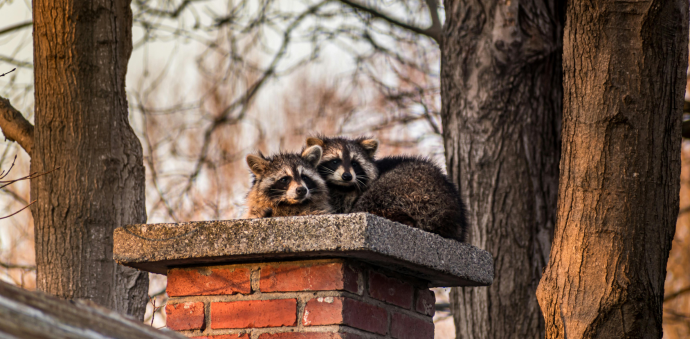
Discovering raccoons or other wildlife inside your rental property can be alarming and pose serious health and safety risks. For tenants in North Carolina, dealing with wildlife infestations raises many questions: What are your legal rights? Is your landlord responsible for handling the problem? Can you seek legal remedies if your landlord fails to act?
This article provides a detailed overview of North Carolina’s landlord-tenant laws related to wildlife infestations, your rights as a tenant, and practical steps you can take to protect yourself. If you are facing a raccoon or other wildlife infestation, this guide will help you understand how to navigate the situation and where to turn for legal relief including how LawPassport can support you in enforcing your rights.
Wildlife such as raccoons, squirrels, bats, or even snakes entering a rental home or apartment presents unique challenges beyond typical pest control. Wildlife pose risks including:
North Carolina tenants should recognize that landlords have legal obligations to maintain their properties as safe and habitable spaces, which extends to controlling dangerous or invasive wildlife.
North Carolina law requires landlords to maintain rental properties in a habitable condition, free from health and safety hazards under N.C. Gen. Stat. § 42-42. This includes timely responding to and addressing infestations of pests and wildlife that threaten tenant safety or property integrity.
Because wildlife can cause significant damage and health concerns, landlords are generally responsible for:
Landlords who ignore wildlife infestations may violate their duty to provide habitable premises.
North Carolina landlords must comply with applicable local housing and health codes, which often have specific provisions about rodent and wildlife control. Failure to meet these standards can constitute a breach of the lease and legal grounds for tenant remedies.
If you discover raccoons or other wildlife in your rental, promptly notify your landlord in writing. Keep detailed records of communications and the infestation's scope, including:
Timely reporting ensures your landlord is aware and triggers their legal duty to act.
If your landlord fails to address the infestation within a reasonable time after notification, North Carolina tenants may:
In extreme cases where wildlife infestations render the home unsafe or unlivable and the landlord refuses to act tenants may have grounds to break the lease due to constructive eviction. This means the landlord’s failure to maintain a safe environment forces you to move out early without penalty.
Yes, landlords must maintain a habitable property and thus should remove wildlife infestations that threaten tenant safety or property condition.
Tenants might be responsible if their behavior breaches cleanliness or maintenance duties causing infestations. However, landlords still have a duty to ensure structural soundness and prevent wildlife entry.
Withholding rent is risky without legal counsel. In some cases, tenants may withhold rent or deduct wildlife removal costs after following proper legal procedures.
Navigating disputes with landlords over wildlife infestations can be complicated and stressful. LawPassport offers North Carolina tenants access to experienced legal professionals who can:
As a LawPassport member, you get trusted, clear guidance so you don’t have to face landlord disputes alone.
If your North Carolina rental is threatened by raccoons or other wildlife and your landlord isn’t addressing the problem, don’t wait. Protect your health, safety, and rights with help from LawPassport.
Contact LawPassport today to connect with expert tenant attorneys who will advocate for you, hold landlords accountable, and help you get the legal relief you deserve.
Read: Breaking a Lease for Ant Infestation: What Tenants Should Know
Read: Can You Sue a Landlord for Emotional Distress Over Pests?